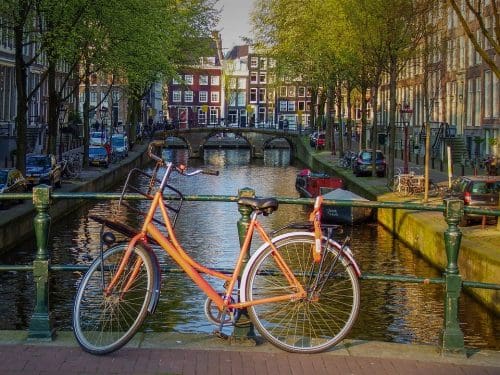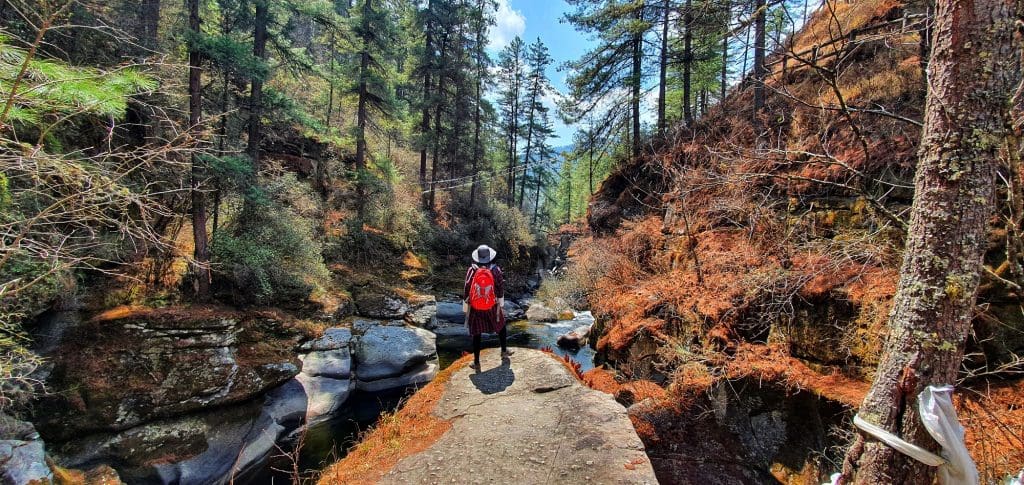In an age where the whispers of nature intertwine with the hum of innovation, green transportation and eco-tourism emerge as the harmonious duet charting the course to a sustainable tomorrow.
As the wheels of sustainable transportation tread softly on Earth, they pave the way for tourism that reveres rather than exhausts the world’s wonders. Together, they ally, ensuring our adventures tread lightly, even as our horizons expand. By prioritizing the environment and crafting travel experiences that are both enriching and sustainable, we are not just witnessing but actively participating in a transformative movement.
This evolving symphony of green transportation and eco-tourism is a promise of not only unforgettable journeys for the wanderer but also a flourishing future for our planet.
Green transportation takes centre stage

In a world growing ever-conscious of its environmental footprint, the spotlight on eco-friendly transportation has never been brighter. Industry innovators and consumers alike are driving this change, with trends emerging that promise greener roads and skies ahead.
Electric Vehicles (EVs) are no longer just a dream for the future; they’re a reality of today. From bustling urban streets to rural roads, EVs are making their presence felt. The boom in battery technology and an expanding network of charging stations are propelling EVs from niche status to mainstream adoption in both personal and public transit sectors.
Hybrid Vehicles sit at an interesting crossroads, bridging the world of gasoline and electricity. By using a mix of traditional engines and electric motors, these vehicles offer a blend of reduced emissions and heightened fuel efficiency, paving the way for a greener transition. Venturing into the realm of zero-emissions, Hydrogen Fuel Cell Vehicles present a tantalizing vision. Powered by hydrogen gas, their sole by-products are water and heat, heralding them as a beacon for sustainable transport.

On the urban front, Bike-Sharing Programs have taken cities by storm. From tourists to daily commuters, bicycles have become the go-to choice for short jaunts, aiding in slashing both congestion and pollution. Then there’s the social trend of Carpooling and Ride-Sharing. Platforms such as UberPool and BlaBlaCar have reimagined travel, rallying individuals to share rides, thereby trimming the number of cars and emissions
In the public transport domain, we’re witnessing remarkable Public Transit Improvements. Electric buses hum along city streets, and hybrid trains crisscross the countryside, reflecting a massive push towards greener mass transit solutions. In terms of futuristic travel, Maglev and Hyperloop Trains are drawing global intrigue. Envisioned to ferry passengers at breathtaking speeds while consuming minimal energy, these could redefine long-distance travel.
High in the skies, Green Aviation is making headway. The quest for biofuels and aerodynamically efficient aircraft aims to drastically diminish the carbon footprints of our flights. And sown in the deep oceans, Sustainable Shipping is navigating greener waters, too. With a focus on alternative fuels, better-designed vessels, and astute sailing routes, it’s charting a course for reduced marine emissions.
A game-changer in vehicle design is the adoption of Lightweight Materials. By slashing vehicle weight, these innovative materials promise remarkable boosts in fuel efficiency. On the tech front, Regenerative Braking Systems are being incorporated into many electric and hybrid cars. By harnessing energy typically lost during braking, these systems add a layer of efficiency.
The evolving urban landscape is also witnessing a surge in Pedestrian-Friendly Urban Planning. Cities are metamorphosing, crafting spaces that nudge people to walk more and drive less, fostering healthier lifestyles and cleaner air. Of course, Smart Traffic Management is the unsung hero of this green transition. Leveraging the power of AI and IoT, cities are striving to streamline traffic, curbing congestion and the resulting pollution.
These trends paint a picture of a world in motion, a world striving towards greener transit solutions. As we stand on the cusp of a new era, it’s evident that eco-friendly transportation and tourism are not just passing trends but pillars for our shared future.
Green Travel: The Benefits of Green Transportation and Eco-Tourism Across the Globe
Environmental Impact
Green transportation, which includes electric vehicles, bicycles, and public transit systems, significantly reduces carbon emissions. By minimizing the reliance on fossil fuels, these modes of transport help mitigate air pollution and decrease the carbon footprint of travel.
Economic Benefits
Investing in green transportation infrastructure can spur economic growth. It creates jobs in the manufacturing and maintenance of electric vehicles, bicycles, and public transport systems. Additionally, it reduces the economic burden of healthcare costs associated with air pollution.
Health Advantages
Green transportation promotes a healthier lifestyle. Cycling and walking are excellent forms of exercise that improve cardiovascular health and overall fitness. Furthermore, reduced air pollution leads to lower respiratory and cardiovascular diseases among urban populations.
The Growth of Eco-Tourism
Conservation and Preservation
Eco-tourism prioritizes the conservation of natural habitats and wildlife. It encourages travelers to visit and support protected areas, national parks, and wildlife reserves. The revenue generated from eco-tourism is often a source of funds for conservation projects, ensuring the preservation of biodiversity.
Community Empowerment
Eco tourism activity can empower local communities by creating sustainable jobs and fostering economic independence. It promotes cultural exchange and encourages travellers to engage with and learn from Indigenous and local communities, thereby preserving cultural heritage.
Sustainable Development
The benefits of Eco tourism encourage sustainable development practices. It promotes the use of eco-friendly accommodations, renewable energy sources, and waste reduction strategies. This approach ensures that tourism does not deplete the natural resources and beauty of travel destinations.
Global Examples of Green Transportation and Eco-Tourism
Amsterdam, Netherlands

Amsterdam is renowned for its extensive cycling infrastructure, making it one of the world’s most bicycle-friendly cities. The city’s commitment to green transportation reduces traffic congestion and air pollution, making it a model for urban sustainability.
Costa Rica is an eco tourism example, with a significant portion of its land dedicated to national parks and reserves. Tourists flock to this Central American paradise to experience its rich biodiversity, from rainforests to coral reefs, all while supporting conservation efforts.
Bhutan

Bhutan’s unique approach to tourism, emphasizing “high value, low impact,” ensures that its pristine environment remains unspoiled. The country’s commitment to maintaining its carbon-neutral status while promoting cultural and ecological preservation makes it a prime example of sustainable tourism.
Call to Action
As travellers, we have the power to make a difference. Opt for green transportation whenever possible and support all types of eco tourism initiatives. Together, we can pave the way for a more sustainable and eco-friendly future in travel.
The benefits of green transportation and the impact of eco tourism extend far beyond environmental preservation. They encompass economic growth, health improvements, community empowerment, and sustainable development. By embracing these practices, we can travel the world responsibly, ensuring that its natural and cultural treasures are preserved for future generations.
Futuristic technology, from self-sustaining electric vehicles, to AI-driven sustainable travel itineraries, is revolutionizing the way we explore and experience our planet. Yet, it’s the indomitable human spirit, our collective desire to safeguard our home, that truly fuels this transformation.
When technological innovation collaborates with conscious human effort, the result is a symphony of sustainable choices that promise a harmonious coexistence with our environment. Together, we’re not only journeying towards breathtaking destinations but also paving the way for a brighter, greener world for generations to come.
Read more: Latest



